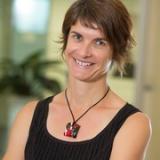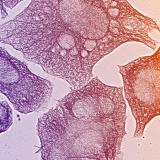The Australian Government is now in caretaker period. During this time, updates on this website will be published in accordance with the Guidance on Caretaker Conventions, until after the election.
Professor Anne Tiedemann’s research aims to develop and evaluate exercise-based programs for preventing falls to promote healthy ageing in older people. Her research aims to determine the barriers, enablers and preferences of older people, so that exercise programs can be implemented more effectively.
Falls have a major impact on the elderly and can lead to long-term disability, reduced mobility, poor quality of life, emergency admission and even death. Associate Professor Anne Tiedemann and her team have shown that exercise can reduce the rate of falls by up to 40%, as well as maximise overall independence and improve other aspects of healthy ageing. However 76% of Australians aged 75 and above are largely inactive.
Professor Anne Tiedemann’s research aims to develop and evaluate exercise-based programs for preventing falls to promote healthy ageing in older people. Her research aims to determine the barriers, enablers and preferences of older people, so that exercise programs can be implemented more effectively.
‘My research has already identified the potential of yoga-based exercise for improving independence and preventing falls in older age,’ she said.
‘It has changed clinical practice worldwide—the QuickScreen fall risk assessment tool that I developed for my PhD research has been cited in CDC guidelines and used by more than 500 clinicians.’
‘My research has also impacted emergency care and shaped fall prevention exercise prescription,’ she added.
'Physical activity has so many benefits for so many aspects of health—it really is the best bet in terms of health promotion. I know this is a field of research that will have a huge impact on good health for Australians.'
Despite the quality and scope of evidence now available on strategies to prevent falls, it continues to be a major barrier to healthy ageing and a financial burden on the health system.
Her current NHMRC-funded research involves evaluating the effectiveness and cost-effectiveness of two healthy ageing programs, the first focused on physical activity and fall prevention and the other on nutrition.
‘I am inspired by my own personal experience of health promoting benefits and participation in physical activity—it really is the best medicine!
‘I am also stimulated by the positive feedback that I receive from our older study participants about the life-changing effect of physical activity for their health, wellbeing and independence,’ she added.
At least one in three people aged 65+ fall each year, equating to around one million older Australians currently falling annually.
This research field could potentially have a significant impact—just a small amount of physical activity daily can have a very positive effect on health, especially as we age.
Professor Tiedemann’s existing strong links with health professional organisations and policy makers are facilitating the incorporation of her research results into clinical guidelines and health policy.



